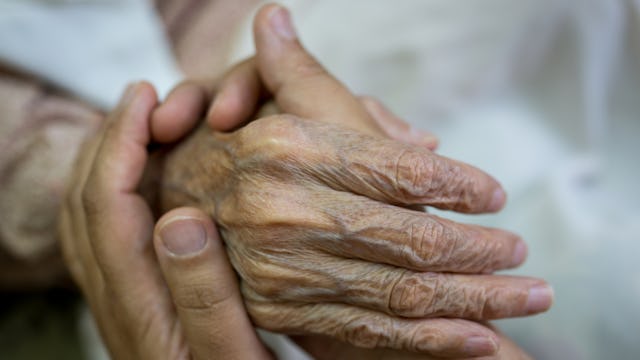Losing A Parent Affects Us Forever -- No Matter How Old We Are

Studies show losing a parent has a lifelong, permanent psychological effect on humans of all ages
The trauma of losing a parent has a profound effect on us all, no matter how old we are. The grief is so immeasurable that there are studies that show the death of our mother or father can actually alter our brain chemistry and have lasting physical effects, too.
The way our brain processes grief is deep, and it’s complex. Research indicates that the regions of our brains that process grief — the posterior cingulate cortex, frontal cortex, and cerebellum — are the same regions that retrieve memories and dwell on the past.
They’re also the same regions of the brain that regulate our sleep and our appetites. Which explains why, when we’re in a profound state of grief or depression, many people experience an increase in sleep, insomnia, or major differences in our appetite.
The loss of a parent, whether anticipated or tragically sudden, brings about different levels and timetables of grief. Losing a parent at a younger age is usually a sudden loss, which can lead to younger children and adults experiencing lengthy denial and anger phases of grief.
Having time to prepare for and accept the loss of a parent, when a death is anticipated, offers the opportunity to say goodbye and find a good support system. This may be why other studies show that younger adults are more deeply affected by parental loss.
Losing a parent can lead to increased risks for long-term emotional and mental health issues like depression, anxiety, and substance abuse. Losing a parent in childhood only increases these odds, and about one in 20 children aged 15 and younger have suffered the loss of one or both parents.
So many of us have complex relationships with our parents — and some of us don’t have one at all. The result of unresolved emotions like anger and resentment has a lasting effect on our psyche as well. The death of a parent means there is no hope of reconciliation or having your feelings validated.
When it comes to the death of a parent, there is no such thing as “getting over it.” No matter what type of relationship you had with them, or what kind of parent they were. It profoundly and permanently alters us — mentally, physically, and emotionally — for the rest of our lives.
This article was originally published on